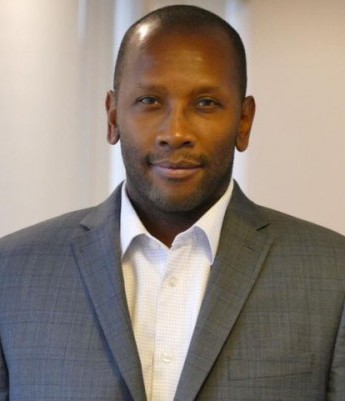Returning to our Advice from the Experts series, we were fortunate to sit down with talent manager, Darren Staten, owner of Worldwide Talent Management, based out of Vancouver, BC, Canada. Darren has honed a special kind of management philosophy that has clients from all over the world joining him to cocreate a pathway that can lead them to further success and a more fulfilling career.
 Darren has clients worldwide, from Croatia to Australia, Germany, the UK and all over the United States. His method encourages his clients to step out of their limiting boundaries and insecurities and focus on the business of acting and growth of their craft. Darren highlights inspiration and accountability which brings a sense of ownership to the actor’s potential and helps the actor develop a skillset that propels them ahead of complacent actors.
Darren has clients worldwide, from Croatia to Australia, Germany, the UK and all over the United States. His method encourages his clients to step out of their limiting boundaries and insecurities and focus on the business of acting and growth of their craft. Darren highlights inspiration and accountability which brings a sense of ownership to the actor’s potential and helps the actor develop a skillset that propels them ahead of complacent actors.
We asked Darren what advice he has for actors that are wanting to take a step into the direction of a professional acting career. Darren, as usual, sparks the actor’s drive and dedication. Here are insightful tips from the talent manager, Darren Staten:
1. What is 1 golden piece of advice you have for an actor starting today?
I was watching Viola Davis in an interview. She said less than 1% of actors make over $50,000 a year. I found that to be profound and my takeaway for actors is this. If you want to be in the top 1% of earnings and make $50,000 a year plus, you can’t take ALL your cues and follow the social norms of 99% of actors.
Doing what all almost all actors do, acting, is probably not enough. So, just taking classes and focusing on getting better as an actor is important, however other less focused on activities, like marketing and becoming outstanding at auditioning, are even more important. This is a business, and a business that creates challenges for actors to earn revenue.
My suggestion for actors is be way more aggressive and focused on building a business, by putting more emphasis on being outstanding at auditioning and marketing, to go along with developing your talent.
Be more aggressive seeking opportunities. However, do it keeping in mind what I call the Four P’s:
1. Be professional
2. Be polite
3. Be proactive
4. Be persistent
2. How can an actor best create a “Unique Character”?
I don’t profess to be an acting coach or expert on that. However, it seems to me that bringing an aspect of you to any character can help the performance to seem more authentic and unique. “Be you as the character.”
If you are a new actor, you might be asking yourself what the main differences are between a talent Manager and a talent Agent. The most significant thing that differentiates the two, is that a talent Agent is licensed by the state, thereby allowing them to solicit their clients work. Agents can negotiate contracts and complete legal paperwork on behalf of an actor. The Agent helps the actor submit to, and potentially book, auditions. The talent Manager/Management Team is not required to be licensed or employed by a management company. Their main focus is to advise and help the actor develop their own brand. Managers assist in helping actors improve their skill set, sharpen their resumes, and guide the actor in the business of acting. While the lines between an Agent and Manager can occasionally get blurred, a Manager is focused on growing you, the actor, to be the best business and creative savvy actor as possible. We asked Darren what it is he looks for in a potential client for collaboration.
3. What are the most important elements on an actors resume to you?
The most important elements I’m looking for on a resume are a few things. First and foremost, does the actor have any Film/Television network/studio credits as a Co-Star etc. If not, I like to see their special skills…do they speak other languages, can they do multiple accents, sing, ride horses. I’ll also see, if they have any on camera coaching or acting classes or classes on camera that teach actors how to breakdown scripts. Lastly, I will see if they are willing and able to audition and perform on stage as well as on camera.
4. What is your pick of the best actors working today?
Lately, I’m loving the work of Jonathan Majors, Pedro Pascal, Olivia Colman and Francis McDormand.
5. What is your list of self-taping essential practices?
The tips below from Casting Directors Susan Bluestein and Jason Kennedy, will help actors become a booking machine!
Tips:
1. Use a tripod or something similar to secure the camera.
2. Always record videos horizontally, not vertically.
3. Be sure you have good light and can be seen clearly, but not so bright that you are blown out. Natural, indirect sunlight, facing a window often works well. Experiment with what you have.
4. Test the sound and video. Can you be heard clearly? Does your shirt clash with the background? Adjust and test again.
5. Be sure to be off-book so you can focus on performing
6. Keep your wardrobe simple. Appropriate, everyday clothes are perfectly fine unless otherwise specified. You may dress towards a character, but you should avoid costumes.
7. Paraphrasing may or may not be a good idea, depending on the casting office. Changing lines is generally not advised, but if you HAVE to phrase a line slightly differently to get through it, we’ll try not to hold it against you.
8. Avoid ad-libbing. The only exception is the occasional, minor ad-libbed button at the end of a scene.
9. The reader must not be louder than the actor. The actor can use a microphone, or the reader should distance themselves from the camera.
10. Your framing should be in the center with the bottom of the frame at about the middle of your chest and the top of the frame just above the top of your head.
11. Depending on what the scene calls for, make a choice to sit or stand and stick with it. Movement should be kept to a minimum unless there is a specific reason for it.
12. Avoid props. Phones and bags are probably the most commonly used and acceptable props when used as phones and bags, otherwise, anything you bring into a scene can be distracting to the viewer.
13. Minimize distractions. Unexpected sounds, on-camera visuals, props, loud clothes, etc.
Darren and Worldwide Talent Management can be found on Instagram and Facebook (both at @worldwidetalentmgmt), and their website: www.worldwidetalentmgmt.com. The process of interviewing with Darren is divided into several steps in order to assure chemistry and potential for collaboration. Thank you to Darren for sharing your wisdom and time with DirectSubmit.com.







